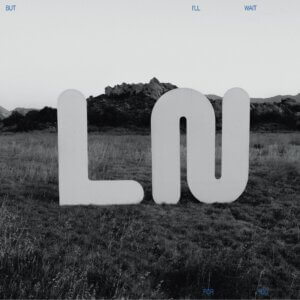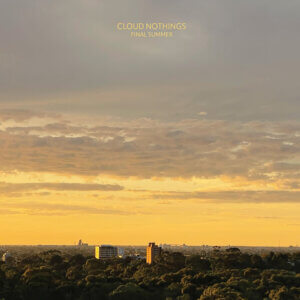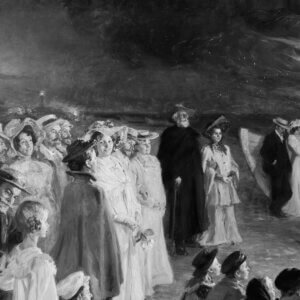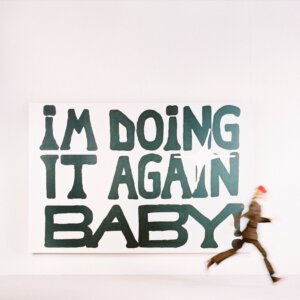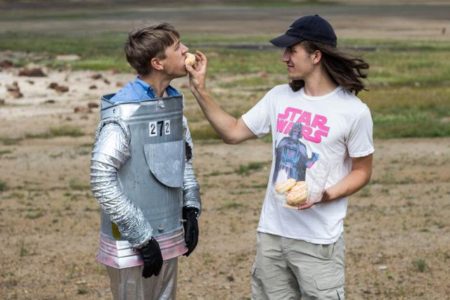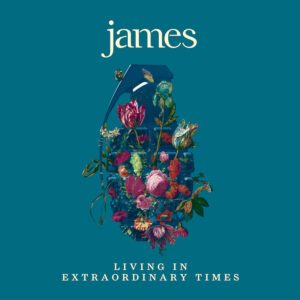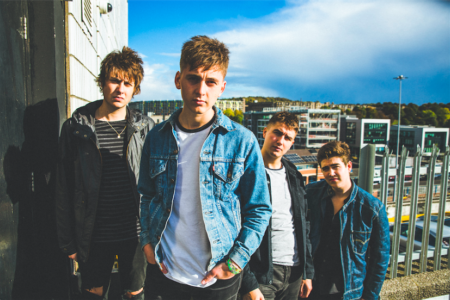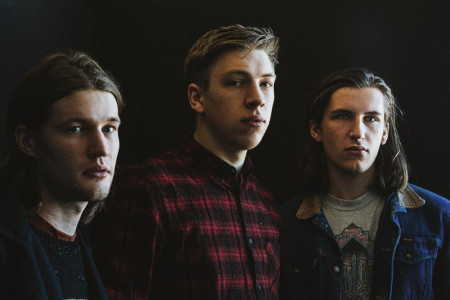Alice Severin Interviews UK Duo Drenge

Northern Transmissions had a chance to meet up with UK band Drenge in New York City on the day of the release of their debut album in the US. Alice Severin talked with Eoin and Rory Loveless, the brothers who are creating a massive energetic sound with one guitar and one set of drums. Tall, intense, and maybe their own harshest critics, the Drenge boys display a fine edge of wit and sarcasm as they talk about the bands that made them want to play and what they are chasing after.
NT: So an amazing year, your record came out last year in England and is out today in the US. You played Glastonbury, did lots of European festivals, and you were named NME Best New Band.
Eoin: Yeah, it’s been quite the whirlwind, what can happen in a year when you write it down on a piece of paper and look at it, it’s a bit of a shock.
href=”http://162.144.215.215/~northhe0/wp-content/uploads/2014/07/photo-2.jpg”>
NT: What’s the biggest thing you’ve had to adjust to?
Rory: I don’t know, I mean there have been big things we’ve had to adjust to but we’ve kind of moved along steadily so that it seems like less of a big deal. So playing in front of a 10,000 whatever capacity crowd at Glastonbury wasn’t actually that daunting, for me anyway, because we’d played in front of crowds a little bit like that before, it’s just a little bit more of a step up. Or when you’re writing a tune, or you’re recording you try out different techniques, you’ve been made aware of them in the past but it’s not actually something you’ve done before. So it’s not like I’m familiar with it but I feel like I’m capable of certain things. So it’s been fairly comfortable in a way but I’m still…still a lot of adrenaline going out, especially playing to crowds like that.
NT: Something that’s obvious, watching you play live – you look incredibly confident. There’s this sense that you know what you’re doing, which is thrilling to watch.
Rory – Yeah, we’re a bit…we’ve been doing it for like three, three and half years, nearly four years, just playing live together like that. And it hasn’t always been like that. We used to be quite…what’s the word…not unconfident, not uncomfortable, but a little bit out of place because it’s a bit different to playing in your bedroom, there’s people watching you. But yeah, we’ve definitely come on a lot since then.
NT: Where did you start out?
Eoin: Our first gig was at Rory’s mate’s 18th birthday party? Is that right?
R: Yeah.
E: And we played for about 15 minutes there, and you know, I think I crowd surfed on three people and…cut my fingers open when I played guitar, and…yeah. Just that kind of nice, typical, first show at your mate’s house sort of thing. And then the next show that we played, our first official show, was on the 8th of December 2010, it was an open mike night, and there was no one there, because it had snowed really heavily the night before and we made a really, like a concerted effort to get to the show. And the only other guy who was there was a wizard.
R: It was good though. It was gentle, it wasn’t too much. It wasn’t like there was a room full of people going “Play some Oasis!” or whatever.
E: We’d never played a gig before and this guy said, “When I flash the lights, you’ll know you have one song after that. So it was almost like a rehearsal for our next gig. Your first shows are never the best events.
R: I think they are. But only after six months, because up until then you just think, ahh, that was just so awkward and uncomfortable and nobody wanted to be there, and I didn’t want to be there. Afterwards, yeah, you appreciate it a lot more.
NT:Do you have a musical background?
R: Our parents sent us off to piano lessons when we were about four, five years old. And before that I think they sent me to some rhythm classes, or something, which I absolutely hated and didn’t understand at all. (laughing) I think I just used to walk around the room and cry and like hit other kids’ parents. I think. I don’t know, that’s what my mum told me once. Yeah, we had piano lessons together and did all the recitals, I think.
Eoin: I had violin lessons before – you know when your parents want to get you into something.
Rory: It could have gone a different way.
E: I remember my first public performance and I learned a song that had two notes in it. (They both start laughing.) But I freaked out. And the song consisted of just one note. I was too scared to move.
R: What, “Run Rabbit Run”?
E: Yeah, (sings) ‘Run Rabbit Run’ – but I think I just stayed on the same string out of fear.
R: We should look into that.
NT: You could do a cover.
R: I’m going to write that down right now.
NT: It seems there’s a lot of musicality in your songs, a lot of good ideas. It’s not just trying to fit a formula.
E: Hmm. I’m not sure if I’d be the biggest fan of our band. I’m not sure I’d buy our records if I wasn’t in the group in a way, I’d probably be going, that’s a bit obvious. It’s only because I’m trying to make the music that I…we make the decisions in our music that we want to make. That’s what our band is. It’s us making music that is comfortable for us and at the same time that’s kind of pleasing to play and is constantly challenging you in the musical sense. And you’re just trying to make it, you’re trying to adjust to these different challenges and trying to improve. It’s just improvisation.
R: We have listened to a lot of music as well. I wouldn’t say there’s a huge amount of influences but there’s a lot of stuff that’s sort of gone in there so then that kind of comes out in the songs. Like Gun Crazy there’s like three different songs.
E: At the same time it prevents you from also doing stuff that you’d want to do. Because you think, well if I do that I’m just replicating that record that I’ve been listening to for the past six weeks. And then you have to go into another creative thing where you’re not plagiarizing anyone, you’re not trying to rip anyone off. You just have to make something that had you not listened to that record last week, or had you never heard of that band, you would do at that point in the song, or with that song, whichever.
NT:Who do you think your influences are if you had to come up with a few? Your music has elements of blues and metal but there’s a story in it.
R: I can’t say I’ve listened to that much metal personally. (Looks at Eoin) I don’t think you have really.
E: I think metal can be… It’s an unhelpful term., because it’s…
R: …so broad, yeah.
E: Yeah, and you can just cancel it and go, all that music there, yeah, that’s metal. But…just for a laugh the other day I was in HMV and flicking through the metal section, kind of like what’s going to be in here. And there was an Arctic Monkeys record in there, and there was two Queens of the Stone Age records in there, as well as Sabbath, and then as well as all the stuff like Bloodrain and like Children of Fear, and all that stuff that you’re never going to listen to, because it’s not the music that…It’s kind of like a painful misuse of genre in a way. Cause it can be good, metal can be good, but a lot of the time…
NT: But there’s an edge to your music.
R: I think that comes from it just being the two of us and trying to make it loud and trying to fill frequencies, that kind of a thing. If there was another member playing a different instrument, then maybe it would sound more indie, like hard indie rock, I don’t know. But yeah. In terms of influences, though…
E: When we started the band though we watched a documentary on Vice called New Garage Explosion, is that what it’s called? It came out about a year after Ty Segall died. I remember…
R: Uh, I think Ty Segall’s still alive.
E: Not Ty Segall, what’s his name, Jay Reatard, sorry. Jetlag. Anyway. I remember when Jay Reatard died, I remember, where I was when I found out. I was absolutely gutted, because I was just getting into like all the stuff that was coming out on Goner Records and it was his music that was getting me interested in guitar music again, when my interest had waned. Because the music I was listening to was a lot of the music that my friends were listening to that wasn’t actually what I determined good, I was just trying to fit in with people at school. And I just remember being really shocked about his death, not even knowing a great deal about him, just being a big fan of his music. And then this documentary came out and it had stuff like the Black Lips in there, and the Magic Kids, Girls were in there, and it had …
R: Smith Westerns.
E: And Ty Segall is in there, even though he’s not dead…and that introduced me to the ideas of American independent rock music and then I bought Rip It Up and Start Again, which is about English and American independent music, and also Our Band Could Be Your Life, and I read those books within about like a week of each other. And both those things kind of changed my attitude to music and the way that you make music and the things that you do outside of music, aside from just playing gigs and recording music. How do you want people to receive your music, what do you do to show, to kind of like… Like what rails do you make for people to understand your music on another level? So do you like give them zines or do you explain the track or what artwork do you use, or how do you tour? So that was like a really kind of key thing for us when we started the band. And then the other side of that was going to see the Hipshakes who are kind of like the British contingent of New Garage. And from that there’s like a load of new UK based independent artists who like self-release and do loads of stuff which is amazing. We support all the bands who do that. And as well as that I went to see a band called Eighties Matchbox B-Line Disaster who’d recently reformed then about six months later disbanded again, so I was really lucky to see them. And also a group called Pulled Apart By Horses who are from Leeds. And both those bands I guess you could put into…
R: They are a bit metally.
E: They are, kind of could be put under the metal end of things but they are equally rock bands and Pulled Apart By Horses have some of the best kind of pop rock riffs that I know. The way that their second record is being produced definitely has a very kind of poppy drum sound. Like the drums and vocals are way higher than the guitars, which if you’re listening to it at a high level it sounds great and if you’re listening to it at a low level you can almost forget the guitars are there and you’re listening to like a shouty pop song. So yeah both those bands are kind of key to the start of the band and the kind of songs that we wrote in the beginning.
NT: Then do you have a lot of input into the artwork, like the album cover? Obviously you think about it, but do you think that’s part of it, what you want it to mean to people, or is it more just an idea that’s interesting?
R: Well, on the album there’s that image of the cemetery and scrap yard, which was a photo taken in Sheffield about 30 years ago. And it just seemed right. We were looking through photos and found that and thought it suited the music and thought it was kind of funny in a way, and appealed to a few themes that we were trying to get across. But also there’s photos of us as kids as babies, and artwork as well which I thought was quite funny because it was a debut album – it’s totally immature. I don’t know if it’s an idea we are trying to push on anyone, I think just like something that suits, that goes with it. We used to do a zine, we still do it very sporadically which is just full of nonsense and stupid artwork and ridiculous ramblings, irrelevant music reviews of records that have been out for 15 years, recipes for bad meals.
E: One of the things I was worried about with our music, songs like I Want to Break You in Half and Bloodsports is that people would take those at face value and not realize how ironic they are.
R: Yeah.
E: And we’re not violent and we don’t look like we’re a rock band, we don’t wear leather jackets and ride around on motorbikes, and we still kind of act like teenagers and still have really meaningless arguments about absolutely nothing. (laughs) So if a song means as much to you as those kind of songs do and you want people to be in on the joke, the only way you can let them know is to be obvious and out about your humor. We don’t talk a lot when we’re on stage. So again that could be misconstrued as aggressive – not wanting to talk about anything. But when we’re on stage it’s the that music comes first, I’m not a stand-up comedian , I don’t, I can’t…
R: It kind of breaks the atmosphere, doesn’t it? I mean everyone should be there to have a good time and it is essentially a party, but it’s kind of hard to really go for it when you’re trying to think of something to say in between, say something nice about the place you’re in regardless of whether you enjoy it or not.
E: But yeah. There’s the sort of half intense angsty side to it mixed up with the ridiculous sarcastic teenage humor side.
NT:There are all these fantastic lines like “All you want to do is choke on the lies you’ve been fed”, or “I want to do everything you morons say” or “Don’t stop until I’m reduced to nothing”. Those are lyrics that obviously hint at a lot more, a sense of irony, a way to express something more complicated in a short space of time.
E” Yeah. Yeah. I don’t know, it’s just funny when you’re blunt. Like if you just say something really obvious a lot more can be read into that than if you say something subtle. Everyone in our generation is so used to going “Well, I kind of like it” “You know, it’s kind of good” or “Yeah it’s fine” or something like that. Then if you just say something really obvious or really sincere or when you take all the “likes” or “sort ofs” or something out of your email and read just how kind of straight it sounds and how honest it is, then it can mean like a lot more, and that’s something that I enjoy when it comes to writing lyrics.
NT: Eoin, do you write most of the lyrics? Or do you split everything equally?
E: Uh, I write most of them and then we go in the studio and then something else happens. (laughs) I don’t know what.
NT: How do you work in the studio?
R: Eoin tends to work by the premise that if you do something straight away that feels honest then it’s those things you go with. Whereas I’m like more of a perfectionist, I guess. I try to eke out as much as I can. So we do a load of drum takes and I’ll force Eoin to do a load more guitar takes or subtly prod our producer to get him to do more.
E: Like we wrote a song the other week, we recorded it, it’s kind of a lot poppier than what we do but it’s all kind of aggressive and the drumming’s there and it had other lyrics when we went in to go and do the take. Then we did three or four more takes and it was not fitting with the song. So at the moment, for me, I’ve got this really great sounding song and this tune that’s wired up in my head. And also Rory and Russ who are both not into that, so for me, again going back to try and come up with something completely original that never existed. You’ve got to just find a new way around it. As well as, it’s not just the lyrics, it’s also the melody that you sing as well that’s massively underrated. When it comes to the vocal side of things people will just go for the lyrics. But then, more recently singers like Rebecca Taylor from Slow Club and Cass McCombs are out there. It’s what’s most powerful. What takes the lyrics to the next level is how they are delivered. It’s not just singing a simple melody or having some clever words to say, it’s much more part of how you deliver them.
NT: Your singing is noticeably good.
E: Thank you.
NT: Seriously, because so many people try to throw it off or maybe they just can’t sing, that’s possible too.
E: It’s not cool if you’re in a rock band to have a good voice. Like there’s loads of amazing rock bands where the singing is just like – this is awful – but it fits with what they’re doing. Like we did a tour with Fidlar and their singing is awful. But – it’s just great chanty, shouty rock music and you wouldn’t want them to sing well over the top. But then you have a band like Queens of the Stone Age and you wouldn’t mess with what Josh does when he sings those songs because the music is just so delicate.
NT: So I’ve got to ask you – on your web site you’ve got the list of influences. Why England v Argentina 1998?
R: Yeah, we watched, what was it, a quarter final between England and Argentina and that was when I was like five. How old were you, six? That was the first time where we really had a vague understanding of what was going on, and supported England, and knew it was a good thing for England to win. And it was important for them to win. And I think we’d got the old coins you could collect from Tesco or something in this little book, and I knew all the players’ names. Then they played Argentina and there was a disallowed goal and the foul by David Beckham who was like the king, basically. It was all falling apart –all the chances of England lifting the World Cup, which I’d seen pictures of so many times and this impending sense of apocalypse that might happen, like you just wouldn’t know what would happen in the world if England didn’t win. And they didn’t win, they got kicked out.
E: I kind of felt similar feelings when watching the World Cup this time because no one expected England to do very well. I just wanted to watch some decent games of football. And watching Germany play Brazil and win seven –nil this time was just …
R: It was painful, it was really too much.
E: And again with USA and Belgium, just this kind of weird elation of a team that was punching way above their weight, and a team that just was working really hard to beat them, and could probably on any other day beat them but just…America. That was one of the best games of football I’ve ever seen. It went into extra time and Belgium scored and it was kind of the end of it. But I don’t know. It’s weird. It’s a weird game … cause I don’t massively follow it but when the World Cup’s coming around it can kind of produce better football than when it’s reduced to…
R: …how much money everyone’s got.
NT: And Margaret?
R: She’s our next door neighbor. She’s our parents’ next door neighbor. She is just really rude, she’s just a total bitch. I started playing my drums when we moved in, and I walked outside and she was having a go at my dad. Then me and Eoin practiced in my room, and she was like knocking on the door, trying to get in the house, and was shouting at us so that meant that we had to start getting the bus into Sheffield and practicing.
NT: So can you pick five albums that you go back to a lot?
E: You can have two, I can have two and the middle…
R: We’ll fight over one.
E: No, the joint record that we both love listening to is Highway 61Revisited.
R: Yeah.
E: Whenever you hear the first track on that it’s just an absolute joy.
R: Yeah, we used to listen to that when we were being driven in for school or whatever by my mum. What’s your record A?
E: Whew. I don’t know. I’d say in the top two is a record called Romance is Boring by Los Campesinos!. One of the best records, to kind of bring out, you know, the teenager.
NT: There’s a really good song on that one…
E: Is it called The Sea is a Good Place to Think of the Future? That record is just insanely well put together lyrically and musically.
R: Well, I’ve just seen Christopher Owen’s face peering out through the shelves at me there, so I’ve got to say Girls’ Album, for me is one. I’m struggling for the second one though. What’s yours?
E: Hmm, maybe something like Lullabies to Paralyze by Queens of the Stone Age. I remember, I don’t think I even understood how dark that record was. I just listened to it at lunchtimes at school, I’d just walk around at school on my own and listen to it. Which nowadays would kind of like be the making of a serial killer or something. (Rory cracks up laughing here.) But yeah, that’s an amazing record but I find it difficult to listen to now because it’s dealing with topics that I was obviously way, way too young to understand. I put it on and kind of went ‘this is great’ (laughs)
R: Hmm. It’s really hard.
E: Go on Rory, go for something left field.
R: Left field. Hmm. Probably…
E: Voodoo Drums or something.
R: William Onyeabor, have you heard that compilation that’s come out last year by Luaka Bop. There’s a little documentary on it as well. Just this obscure West African artist from the 70s who somehow got hold of a lot of Russian synthesizers and made a load of, made like 7 amazing albums.
NT: That sounds like an incredible combination. It’s good how they find these things, it’s a shame they lose them in the first place but there seems to be more coming out.
E: Yeah, it’s interesting when it happens in cinema as well, like when they found the missing chapters of Metropolis and put it back into the larger film as well. It’s kind of nice to do a bit of crate digging…and find bits of films or bits of music that have almost been lost.
R: Yeah, and it changes your perception of it so much.
NT: You’re writing songs …it’s horrible to ask, as the album just came out today, but when’s the next one?
R: No, we’ve been working on it. We’ve done a couple of songs in the studio, we’ve booked out September to hopefully finish it off. But I don’t know, it might turn into something broader, writing a sarcastic rock opera, but it’s well on its way, the foundations have been laid.
NT: Are you recording it in the UK?
R: Yeah, in the same place we did the first album in Sheffield with Ross (Orton). But there’s no stand out track, no title for the album, no artwork or anything yet, just songs we’ve got. But it feels a lot more well thought out than this one. Cause this one – we did four songs and then went back to school for a year, then did another four songs and then got a record deal a couple of months after that and finished it off. It was only because we didn’t know, like, what was going to happen.
NT: Well, really looking forward to the next one and checking out the live shows. I’ve been playing the first one around to a few people who are quite young, grumpy – so they’re perfect – (Eoin starts laughing), and instant positive reaction. So thank you.
E and R: No, thank you.
The debut album Drenge is out now. They will be touring the US until August 9.
Latest Reviews
Tracks
Advertisement
Looking for something new to listen to?
Sign up to our all-new newsletter for top-notch reviews, news, videos and playlists.


